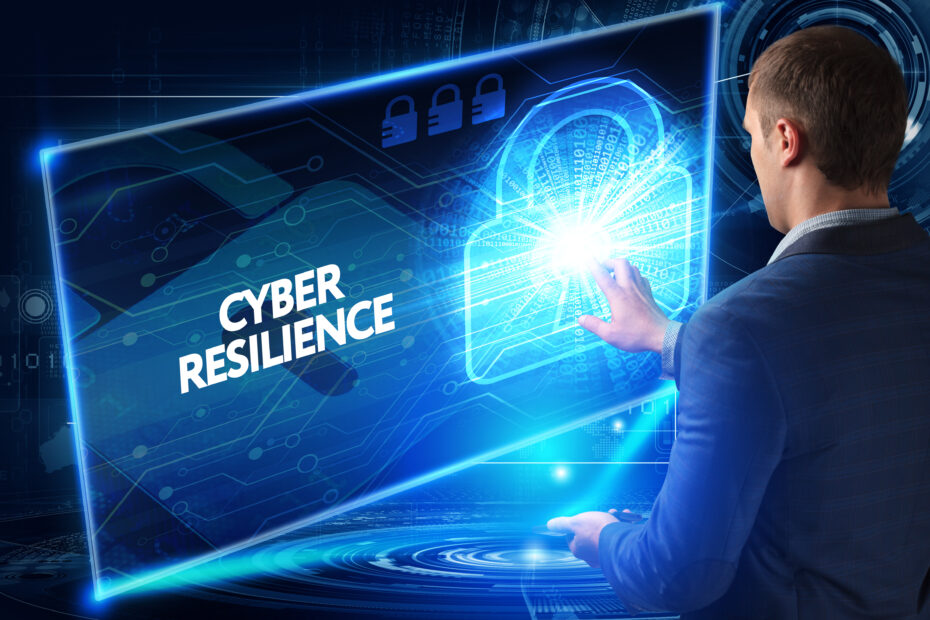
Information technology is the backbone of our economy. Every day, millions of transactions are done online, and crucial company data is stored in cloud servers. But, as it is with every good thing, there’s a bad side to it.
The continuous development of IT has left many people and businesses vulnerable to hacking. Without the means to defend itself against hacking, a business may lose important data or fall altogether. So, this brings us to the question, how can we protect ourselves from attacks on cyberspace? The answer to this question is simple, cyber resilience!
Related: Ezdrivema Login
Table of Contents
What is Cybersecurity Resilience?
Cyber security resilience is the ability of an individual, company, or organization to plan for, respond to, and recover from cyberbullying while continuing to work effectively.
An organization can only be said to be cyber resilient when it can protect itself against cyber-attacks, has an appropriate and effective risk control for information protection, and can continue its operations during and after the cyber-attack.
Related: msum D2l
In the past, businesses used aversive measures like protection questionnaires and penetration testing. Both of which are no longer effective deterrents to cyber-attacks, thus necessitating the need for cyber resilience.
Elements of Cyber Resilience
1. Manage, and Protect
This includes identifying, analyzing, and handling any cybersecurity threats associated with networks and information Systems-including those acquired through third and fourth-part vendors.
Related: KIIT SAP Portal Login Page Online
2. Identify and Detect
This includes continuous surface management and monitoring of threats to detect any anomalies and data breaches before any serious damage occurs.
3. Respond and Recover
This involves having an effective incident response plan to ensure continuity of business, even after a cyber-attack.
Related: advanced systemcare pro 12.3 key
4. Govern and Assure
The final element in cyber resilience is ensuring that the cyber resilience program is run and supervised as part of your business.
Benefits of Cyber Resilience
1.Enhancing System Security
Apart from helping an organization respond to a cyber-attack and survive it quickly, cyber resilience can also enable the organization to develop and design security strategies that can be molded around its existing infrastructure. It also boosts safety and security across the system, thus decreasing the possibility of cyber-attacks and minimizing their effects if they do happen.
2.Reducing Financial Loses
Regardless of how good your IT security is, no entity is immune to cyber-attacks. A data breach in a small to medium enterprise can result in financial losses totaling hundreds of thousands. In contrast, an attack on a large organization can result in the loss of millions. Additionally, a successful cyber-attack can damage an organization’s reputation in the field.
Related: 100% Working Avast Premier License Key 2021
An effective cyber resilience program can significantly reduce the effects of the attack, thus minimizing financial losses.
3.Enhanced Protection of the Systems
The main purpose of a cyber resilience program is to help you respond to an attack and survive it. It can also help you to build an IT governance strategy, enhance safety and security across sensitive assets, improve your data protection ability, reduce human error, and reduce natural disaster impacts on your system.
In contrast, a site-to-site VPN uses a gateway device to connect an entire network in one location to a network in another location. End-node devices in the remote location do not need VPN clients because the gateway handles the connection. Most site-to-site VPNs apps e.g privacycritic connecting over the internet use IPsec. It is also common for them to use carrier Multiprotocol Label Switching (MPLS) connections rather than the public internet as the transport for site-to-site VPNs. It is possible to have either Layer 3 connectivity (MPLS IP VPN) or Layer 2 (virtual private local area network service) running across the base transport links lesmeilleursvpn.
4.Improving Trust in the Customer-vendor Ecosystem
Over the past decade, much emphasis has been put on vendor and third-party risk management frames. But, regardless of your vendor’s security, your company must put cyber resilience strategies in place to protect both your client’s data and the vendor’s credibility.
Related: Drivermax Pro Key
Traditional cybersecurity measures are no longer adequate to deter or deal with cybersecurity threats. To protect your business, you need to employ the use of cyber resilience programs. Doing so will not only keep your data and finances safe but will also protect your business’s credibility.
Follow Today Technology for more informative reviews.



![Photo of Best Spotify Alternatives For Free Music Streaming [in 2021]](https://www.todaytechnology.org/wp-content/uploads/2021/03/shopity-220x150.jpg)


